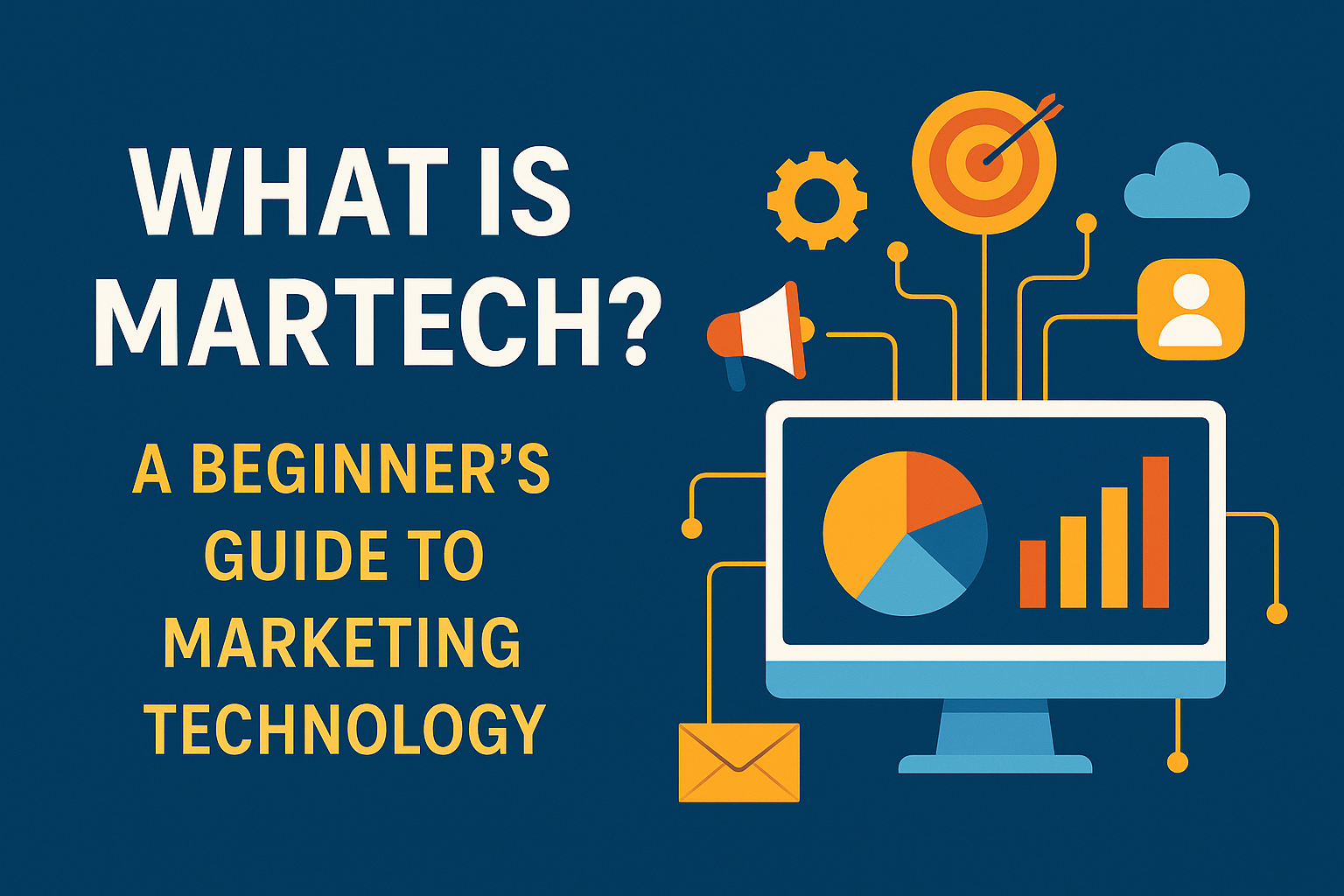
Marketing today isn’t just about creativity. It’s powered by data, automation, and technology. That’s where MarTech (short for Marketing Technology) comes in.
If you’ve ever used Google Analytics, Mailchimp, HubSpot, or even a simple social media scheduler, you’ve already experienced MarTech in action.
In this beginner’s guide, we’ll break down:
MarTech = Marketing + Technology.
It refers to the software and platforms that marketers use to plan, execute, measure, and optimize their campaigns.
Think of MarTech as the engine room of digital marketing. Instead of relying only on manual effort, these tools help:
Here’s why businesses rely on MarTech today:
📊 Fun fact: Gartner reports that CMOs now spend more on MarTech than on traditional advertising.
Every MarTech stack is different, but here are the essential categories:
💡 Pro Tip: A solid MarTech stack should at least include analytics, automation, and a CRM.
Let’s say you run an e-commerce store:
That’s a MarTech stack in action — tools working together to drive growth.
With 11,000+ tools available, it’s easy to feel overwhelmed. Here’s a framework:
The next wave of MarTech is driven by:
👉 Businesses that adopt MarTech early gain a long-term competitive advantage.
Q. What does MarTech stand for?
MarTech = Marketing Technology. It refers to the tools and platforms used in marketing.
Q. How is MarTech different from AdTech?
AdTech focuses on advertising (media buying, targeting, ad delivery). MarTech covers all marketing activities including CRM, analytics, automation, and SEO.
Q. Do small businesses need MarTech?
Yes. Even a free CRM + Google Analytics + email automation tool can save time and improve results.
MarTech isn’t just a buzzword — it’s the backbone of modern marketing.
Whether you’re a startup, an e-commerce business, or a marketing professional, understanding MarTech (and building the right stack) can help you attract, engage, and retain customers more effectively.
Welcome to the future of marketing. Welcome to MarTech.
